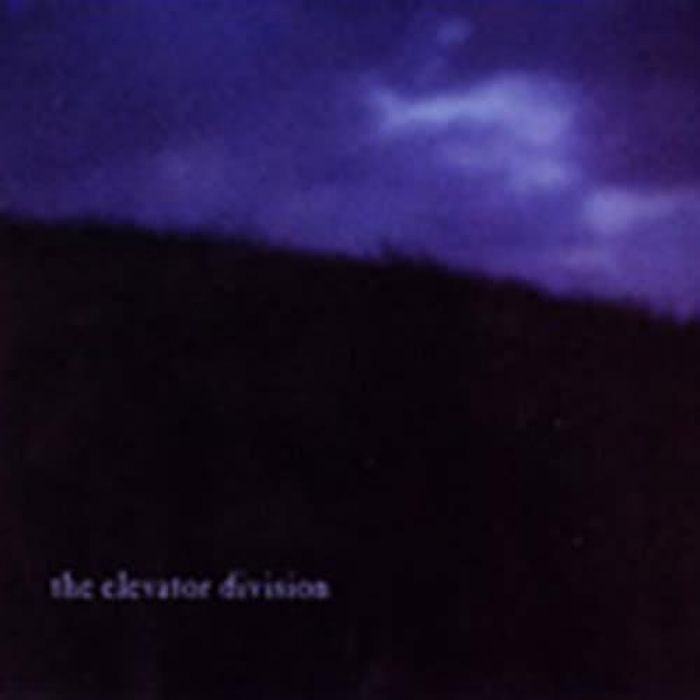Imaginary Days by The Elevator Division (Review)

When I first looked at the CD art for Imaginary Days, I assumed I was in for some cheesy, melodramatic goth music. The dark, purple-tinged sleeve art had the appropriate rainy day feel to it, and the typeface (Caslon Antique Regular, I believe) had that nice decayed look about it. I steeled myself for painfully bad lyrics, buckets of pathos, and shameless usage of “grey sky” imagery. Instead, what I heard immediately took me back to the music that first made me passionate about music in general.
My musical evolution didn’t really begin until my junior and senior years in high school. It was during this time that I introduced to those favorites of disillusioned teens everywhere, The Cure and Depeche Mode. But it was during this time that I was also introduced to bands like The Prayer Chain, LSU, and The Violet Burning. Although I’m sure The Elevator Division spent their fair share of time listening to the ruminations of Mr. Smith and Mr. Gahan, their music shows a marked influence from the likes of The Prayer Chain et al.
The Elevator Division’s music is rife with atmosphere, but it’s tempered by the edge the band brings to their songwriting (just listen to the way that Samuel Hoskins attacks his drums throughout the record). But what really caught my attention were the vocals. Joseph Hoskins has a powerful, evocative voice that’s very reminiscent of Michael J. Pritzl (The Violet Burning) or The Autumns. While they definitely tend towards the melodramatic side of things, they also go a long way towards adding depth and passion to the music.
And while much of the album is fairly dirge-like, it’s not so much out of a sense of pathos and angst that feels like its been held over from early high school. Rather, there’s a true sense of humility flowing throughout The Elevator Division’s music. There’s something about listening to Hoskins singing “I’ve been waiting all this time” over ghostly, howling guitars and thundering percussion that has more than just a bit of urgency to it. But just when things seem in danger of becoming self-absorbed, along comes “The Caribou Suit,” which starts off solemnly enough before becoming a hook-laden, frenetic song in the best tradition of Luxury.
Like The Violet Burning, The Elevator Division write passionate songs about faith and love. Whereas many bands pine away after a girl, The Elevator Division pines away after God. And while they do write songs about human relationships, they’re written in the wider context of relationships with God. “Changing Words” is about a betrayed lover finally coming to grips with deception by coming to terms with God, and on “Love Song,” Hoskins sings “She strips me of the living but she loves me just the same?/Blind and broken she leaves me/I call Your name.” Again, some might find it a little melodramatic, but I have no question about the band’s conviction. And even the naysayers might be hard-pressed to find fault with the emotional and humble “In Stillness” or the reverent “Christe Yeshu.”
If you’re still upset at the breakup of The Prayer Chain, or can’t quite get past The Autumn’s peculiar brand of dreampop power balladry, than I highly recommend checking out The Elevator Division. The recording is a little raw in places, and the band walks a fine line between emotionalism and melodramatics. But as I said, it’s actually refreshing to hear some passionate vocals now and then, especially considering the amount of instrumental music I listen to. And it is nice to listen to a band that’s passionate in their lyrics without resorting to emo tactics and gothic cliches.